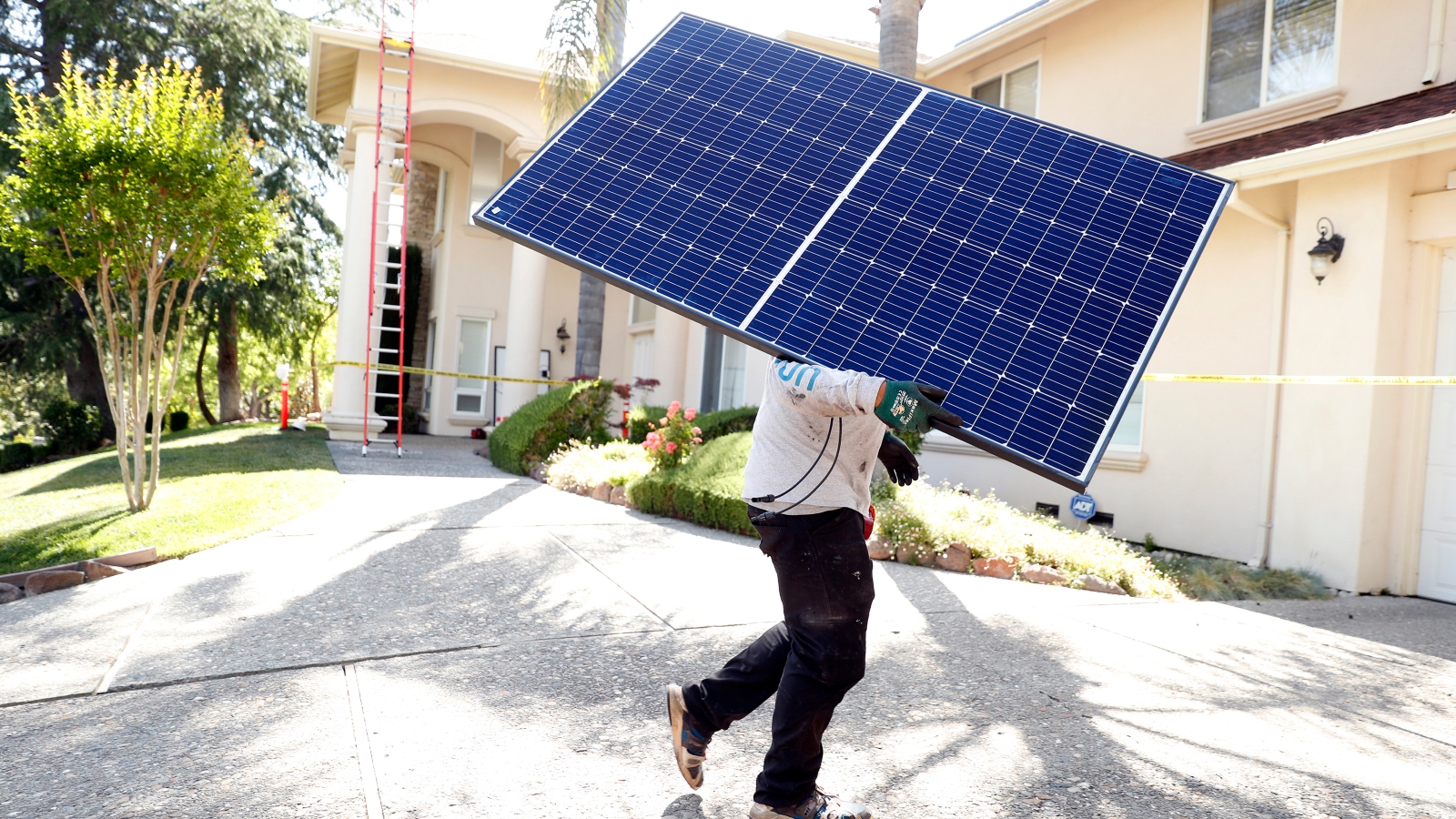This story was supported by the Economic Hardship Reporting Project.
A new government program aims to tackle climate change upgrades in federal public rental housing units that most desperately need the help.
Advocates, while praising the goal of the program, say it doesn’t go nearly far enough.
The program is a first for the U.S. Department of Housing and Urban Development, or HUD, and would give funding to retrofit housing for people on the agency’s rental assistance program. A HUD official told the Washington Post that he estimates the program would reach only hundreds of properties, instead of the nearly 24,000 that are eligible.
The initiative has $837.5 million to fund these climate retrofits, which will target some of the country’s oldest and least energy-efficient rental buildings, while also preparing them for climate-related disasters. Climate events are poised to impact one in 10 homes, according to a report released last year by CoreLogic, an international data property company.
Carlos Martín, project director at the Joint Center for Housing Studies at Harvard University, told Grist that the program will do a lot for the families that qualify but that the climate crisis requires greater investment than the initiative provides.
“The challenge in this case is because it’s a finite amount of money,” said Martín, “so it’s going to go deep for a lot of buildings and certain households that live in the building, but it’s not going to go very wide.”
The upgrades will create homes that are more resilient to climate events by funding retrofits like the installation of solar panels, heat pumps, and wind-resistant roofing. It will also fund the structural and insulation-related changes needed to sustain the energy and weight requirements of new clean technologies.
The Biden administration originally proposed a $170 billion plan for housing, which would have allocated $15 billion for affordable housing alone. Most political pundits attribute the original bill’s death to its opposition from Senator Joe Manchin, a Democrat from West Virginia.
Eventually, the administration did pass the Inflation Reduction Act, which was a reduced version of the original Build Back Better bill and provided funding for this program through HUD.
This program is also a part of the Biden administration’s Justice40 plan, which aims to provide 40 percent of federal funds to address underserved, pollution-burdened neighborhoods. The plan has previously been criticized for ignoring race, which complicates efforts to help communities of color that live with industrial contamination.
Almost 70 percent of people who use HUD programs are Black, Hispanic, or Asian. This initiative could increase their access to resources that wealthier Americans have already been utilizing, like solar power.
“I really appreciate an opportunity to have a federally funded program that really contributes to advancing racial equity in various sectors in light of climate change,” said Sabrina Johnson, a lead housing advocate for the Natural Resources Defense Council.
Federally funded housing programs have historically been rife with racist housing policies such as redlining, which was created when the Federal Housing Authority refused to back mortgages in Black neighborhoods. Those policies still reverberate through the housing market today.
This initiative aims to change that dynamic and instead center communities of color to protect them from the harms of climate change. Johnson said, though, to truly be equitable, this and other initiatives like it need to incorporate feedback from the people directly affected when designing these programs.
“It’s really critical that we ensure that we’re not advising on what we think the community needs, but we’re hearing it directly from the source,” said Johnson.
Martín is worried about who will actually get the money. He’s concerned that the Southern U.S. will suffer more from climate change than the North and could get left behind.
“So it’d be important for HUD … to make sure that maybe if you’re living in the South in a rural area, and are living in one of the buildings that get benefits from one of these programs, that you also get access,” he said. “It’s not just the Chicagos, the San Franciscos, the L.A.s, the Bostons of the world.”


